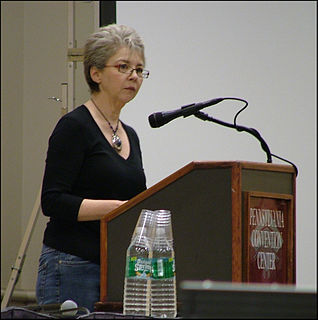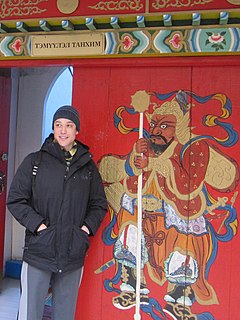A Quote by Phoebe Waller-Bridge
I don't think the challenge is asking an audience to like a character; it's inviting them to try and understand them... then making that journey entertaining and worth their while. It's a classic trick, but it's human, and it allows characters to have more depth.
Related Quotes
. . . I felt that making her one-dimensional would be an insult to the audience, and also not as interesting. All destructive people have an inner side to them, and the more three-dimentional your characters are on screen the more compassion you can open up in an audience . . .. To me, that involves the audience more, it stimulates them and asks more of them.
I never look at twists as a way to trick the audience. Obviously, I think a good story has surprises and unexpected turns, and you always want to do that with an audience. But it has nothing to do with conning them or making them believe so strongly in one thing and then kind of going the other way.
I think people are a mixture of everything. I like desperate characters because they do things that most of us normally wouldn't do. If a character is a scoundrel or a liar you think you know them, but then I can bring some emotion to them and they become much fuller than you ever imagined. So what I try to do is have a story where you don't quite know where it's going, and characters who you don't quite know where they're going.
The Jewish sages also tell us that God dances when His children defeat Him in argument, when they stand on their feet and use their minds. So questions like Anne's are worth asking. To ask them is a very fine kind of human behavior. If we keep demanding that God yield up His answers, perhaps some day we will understand them. And then we will be something more than clever apes, and we shall dance with God.
I don't understand choreographers who say they don't care about the audience or that they would be happy to present their works non-publicly. I think dance is a form of communication and the goal is to dialogue with the audience. If an audience member tells me they cried or that the dance moved them to think about their own journey or a family member's, then the work is successful.
I think you do have to attend to the sort of core values of film, which is that the audience wants to have a relationship with the characters, they want to understand what's going on there. There are certain things that comics can have a little bit more freedom in then when you're asking an audience to engage in it as a piece of cinema, but I do feel like the canvas is much bigger and wider and that we're being invited and frankly challenged to take risks, to be a little bit different. And that's fun, that's exciting.
I try to write about real women, real people - in other words flawed characters. I find flawed characters much more interesting than perfect ones and enjoy the challenge of making readers root for them in spite of their unsympathetic path and destructive choices. Life is about the gray areas. Things are seldom black and white, even when we wish they were and think they should be, and I like exploring this nuanced terrain.
There are, then, these three means of effecting persuasion. The man who is to be in command of them must, it is clear, be able (1) to reason logically, (2) to understand human character and goodness in their various forms, and (3) to understand the emotions--that is, to name them and describe them, to know their causes and the way in which they are excited.



































